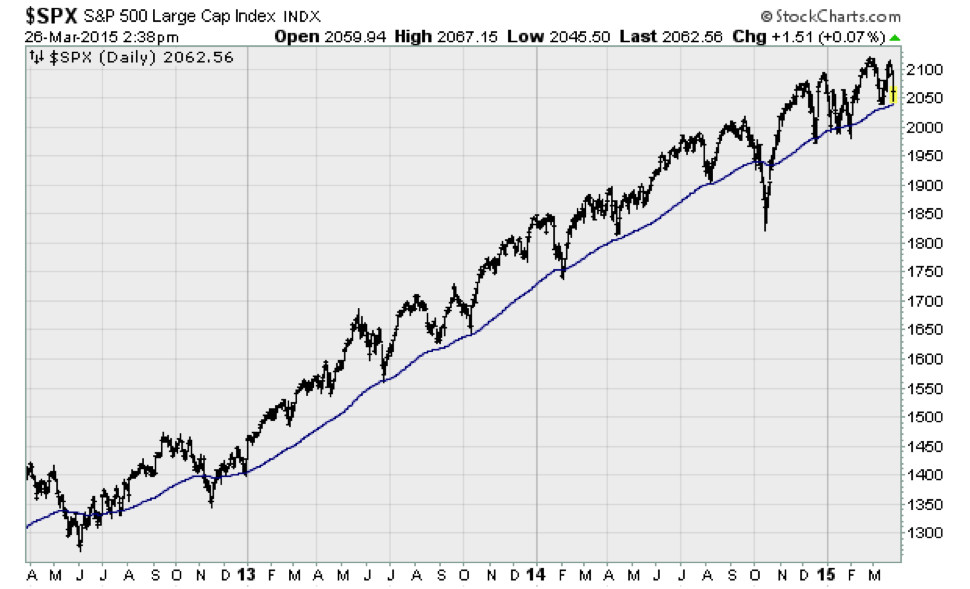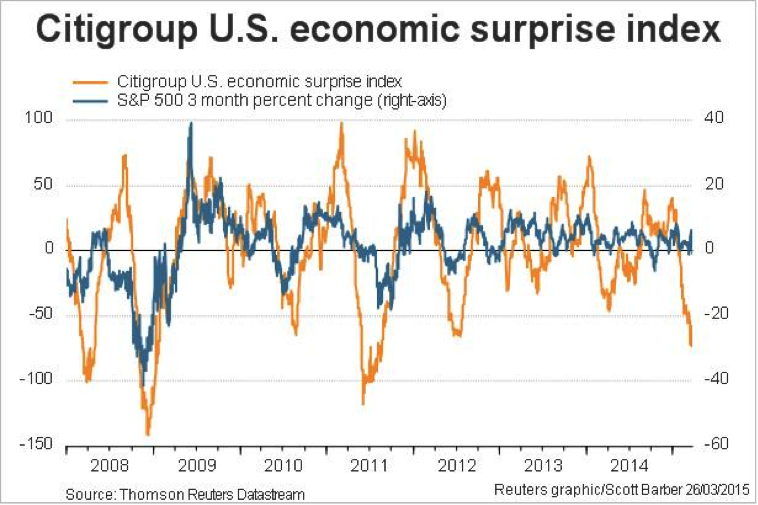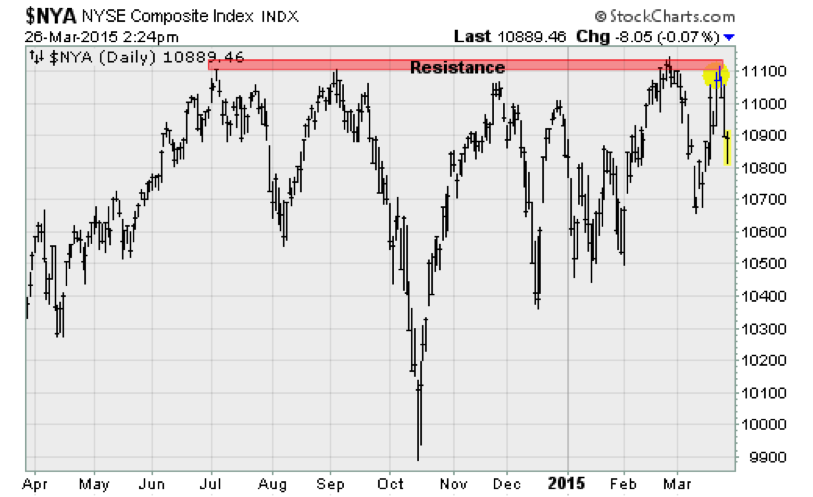Stocks bounced off a key support level on Thursday in an attempt to put an end to three consecutive days of losses. The attempted rally failed, though, leaving the S&P 500 lower for the fourth straight session.
The stakes for the stock market here could hardly be higher.
The S&P 500 dipped into negative territory for the year, but will likely find support once again on its 125-day exponential moving average — a level that has supported it nearly without fail since 2012, as shown below. Only October's Ebola scare broke that spell. Stocks toe-tapped this level on Thursday morning before trying to rebound. A failure to hold this key level could unleash a wave of selling.

Remember, the market hasn't suffered a "correction" of 10 percent or more since 2011. And while that decline was caused largely by political gamesmanship in Washington concerning the debt limit, other conditions are the same now as they were then: The Federal Reserve isn't buying bonds (a major driver of stock market performance in recent years) and economic data is disappointing in a big way.
Related: Bernanke Was Right: Interest Rates Aren’t Going Anywhere
The big bummer was durable and capital goods orders, which fell more than 1 percent. Orders for non-military capital goods ex-aircraft — a proxy for future business investment spending — suffered its sixth consecutive monthly decline, the longest losing streak since 2012.
Also weighing was a nasty pullback in biotechnology stocks — an area of speculative excitement in recent months. The Biotech iShares ETF (IBB) lost 4.1 percent on Wednesday and is down 7 percent from its recent high for the worst pullback since April 2014. The IBB is trying to gather its strength on its 50-day moving average, a level that's supported it since October.
Last week, the price-to-earnings ratio for biotech stocks, as a group, had swelled to 50x compared to the S&P 500's current valuation of 17x (which, it must be said, is higher than its been since 2004). Moreover, nearly 75 percent of biotechs in the Nasdaq Biotech Index have no earnings at all and just five companies — Gilead (GILD), Amgen (AMGN), Shire (SHPG) and Celgene (CELG) — are responsible for 83 percent of the $31 billion in annual earnings for the index. Only 41 companies in the biotech index are profitable, which means that the other 73 percent are losing money.
In other words, investors are piling into companies that aren't profitable at extreme valuations — bringing back memories of the dotcom melt up. That is why the IBB's wipeout this week rattled so many nerves.
Related: Americans Are About to Get a Nice Fat Pay Raise
Going forward, as has been the general rule of this bull market, much depends on the Federal Reserve.
You see, generally poor economic news was long considered a positive for a liquidity-addicted stock market, since it increased the odds of additional monetary policy easing and an extended reign of ultra-low interest rates. That hasn’t been the case this week, as Fed officials have been out in force reinforcing expectations of rate hikes this year and largely dismissing recent economic weakness as weather related and a slump in inflation as caused by transitory factors. This comes as the Atlanta Fed's GDPNow real-time forecast of Q1 GDP growth falls to just 0.2 percent.
The concern is that the Fed is not publicly acknowledging the downside risks of a global economic slump and deflationary pressures. We've seen weak economic results out of Japan and China this week, for instance. Moreover, since the beginning of the year there have been 27 separate interest rate cuts by foreign central banks.
And while there was a weather-related drop in first-quarter 2014 GDP growth into negative territory, the current slump is deeper by some measures, such as the U.S. Citigroup Economic Surprise Index, suggesting that perhaps it's reflective of structural problems rather than just snow falling in winter. The Citigroup index has fallen to levels not seen since 2011.

Stocks, as represented by the NYSE Composite Index, are contending with massive overhead resistance going back to last summer. The good news is that if the Fed softens its tone, we could see a breakout leading to an easy-money, currency-driven boost of the type we've seen all across foreign markets this year — in China, Japan, Germany and elsewhere — but has yet to appear in the United States.

Related: The Bond Market Is Warning of Huge Trouble Ahead
If, on the other hand, the Fed surprises by hiking rates for the first time since 2006 at its June meeting, thing will get ugly fast.
Fed Chair Janet Yellen will speak on Friday in San Francisco. Merely a hint of concern over the degradation in the economic outlook — or the dollar's impact on corporate profits — could quickly turn things around.
We'll need some momentum to keep the three-year-old uptrend intact as new hurdles, from the Greek bailout negotiations to the simmering proxy war between Iran and Saudi Arabia in Yemen to the start of the first-quarter earnings season in April, all threaten.
If the bulls don't step up right here, right now, a washout of a ferocity not seen in four years could result.
Top Reads from The Fiscal Times:






